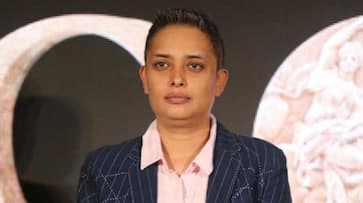Filmmaker Reema Kagti of Honeymoon Travels Pvt. Ltd. fame says warped censorship laws may be responsible for the alarming growth rate of violence against women.
New Delhi: Filmmaker Reema Kagti feels censorship in movies is not necessary for a democratic country like India even though she does support the need for certification. The director and screenplay writer, who has co-written Amazon Prime’s latest web series Made in Heaven, also believes that lack of censorship is a major reason why filmmakers feel encouraged to work in the digital platform.
Talking to MyNation, Kagti explained, “It is very limiting as a creator to not be able to show certain things to adults. I understand the need for certification. I am not understanding the need for censorship in a democracy. I have never understood it and I don’t think anything is going to happen which is going to make me feel that it is valid. In India, even for an ‘A’ certificate, certain cuts have to be made. So, it is a question for all of us to ask. What place does censorship have in a democracy?”
Also read: Sarkar re-censored: Here are the 3 main scenes that will be chopped off, and we tell you why
Apart from curbing freedom of expression, the censorship may also be responsible for violence against women, she says. The filmmaker, who has movies such as Honeymoon Travels Pvt. Ltd., Talaash: The Answer Lies Within to her credit and has written the screenplay of movies such as Gully Boy and Zindagi Na Milegi Dobara, also expressed that it is easier to show non-consensual sex on screen in our country, which is also partially responsible for the alarming growth rate of violence against women.
She said, “From a writer and director’s point of view, in India, today it is easier to write and shoot a scene of non-consensual sex than consensual sex. If you see in our culture, in the 70s, 80s and even now, what you really see on the screen are rape scenes. But you never see a scene of tenderness between two people. That, on a level I think is a huge problem for your growth as a society. I think it has something intense to do with the amount of violence against women in India.”
Also read: This exhibition of rape victims' clothing will make you think hard about victim-shaming
Kagti also pointed out that in the past, several committees have spoken about doing away with censorship in films but it continues to exist. She said, “If you see, several committees have been placed and I am not speaking about only one government. Successive governments have come up with panels, the last one was led by Shyam Benegal. These panels keep recommending, take out censorship, put in certification. But nobody is really doing that.”
Presently, OTT platforms (apps providing streaming content directly to the viewers) in India do not have censorship on their content. What will happen if these are also is censored? Kagti answered, “In the web space if you start censoring, what will happen? You are only censoring Indian creators and putting them at a huge disadvantage when they are functioning on a global platform. I hope this space also doesn’t fall prey to censorship.”
Last Updated Mar 8, 2019, 5:11 PM IST









![Salman Khan sets stage on fire for Anant Ambani, Radhika Merchant pre-wedding festivities [WATCH] ATG](https://static-gi.asianetnews.com/images/01hr1hh8y86gvb4kbqgnyhc0w0/whatsapp-image-2024-03-03-at-12-24-37-pm_100x60xt.jpg)
![Pregnant Deepika Padukone dances with Ranveer Singh at Anant Ambani, Radhika Merchant pre-wedding bash [WATCH] ATG](https://static-gi.asianetnews.com/images/01hr1ffyd3nzqzgm6ba0k87vr8/whatsapp-image-2024-03-03-at-11-45-35-am_100x60xt.jpg)


